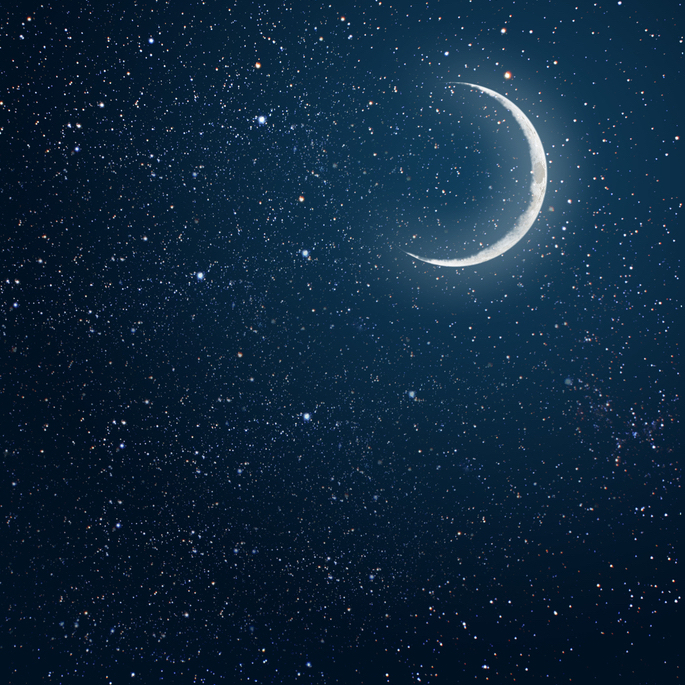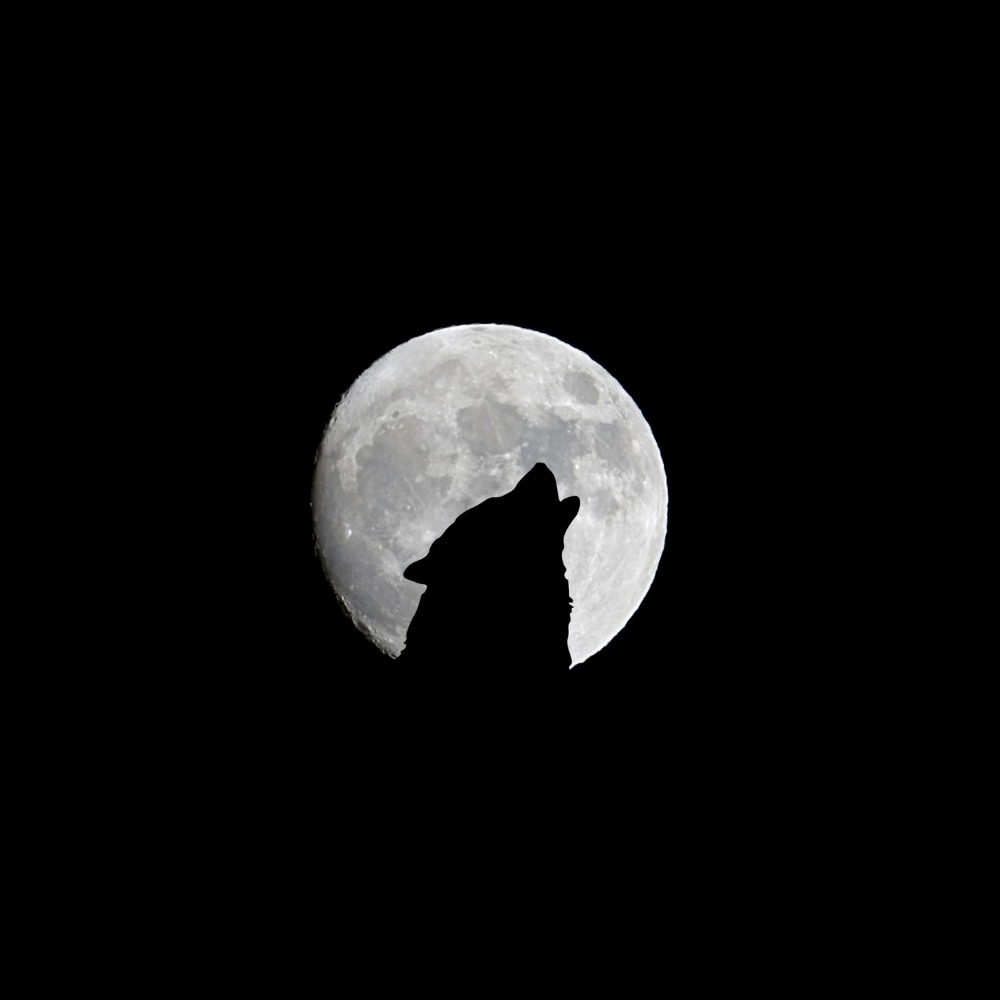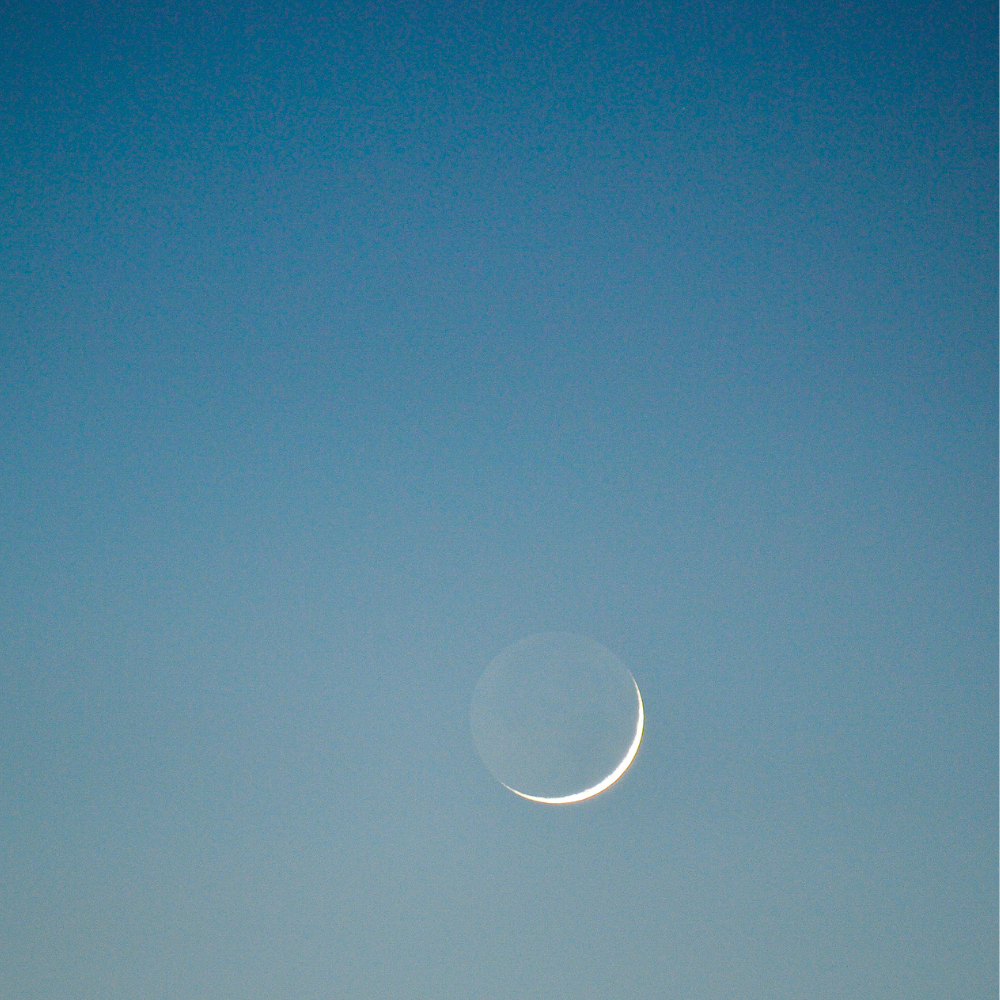5 Minute Read
Words by WYLDE MOON staff writer
Share this article…

If you’ve followed our journey, you’ll know how much we all love Mother Moon here at WYLDE MOON. There’s something about her cyclical constancy as she waxes and wanes, combined with the knowledge that she’s looked over us since the beginning of time, that brings a soothing comfort.
Even if you’re not as moon-obsessed as we are, there’s no denying the scientific impact on time, tides and light, she has on our planet. The fact that that beautiful orb has shone in the sky since the start of our evolution, means that lunar rhythms are rooted in the life cycles of many organisms, but this is only scratching the surface of the day to day impact the moon has on our lives.
The impact of the Moon through words – AKA Moon Etymology
It’s no surprise to us that the actual word ‘moon’ has an extensive history due to its existence long before human language came into play! But did you know that the word ‘moon’ is the foundation for many words and phrases we use every day?
1: Monday
It’s quite possible that days of the week feature in our vocabulary more than most. Interestingly, ‘Monday’ is derived from the word ‘moon’ – quite literally meaning ‘Day of the Moon’. It is written that the days of the week were originally inspired by astrological patterns, and it’s not just in English, where we see this. It occurs in many other languages too, particularly those rooted in Latin, where the word for moon is ‘Luna’. In Italian, Monday is ‘Lunedi’; in French, it’s ‘Lundi’; in Spanish, it’s ‘Lunes’ and interestingly German is similar to English with ‘Montag’…to name but a few!
2: Month
The word ‘month’ is also closely associated with the moon, given her monthly cycle of phases. Many moons ago, this was exactly how people monitored the transition of time between one new moon and the next. So clever!
3: Menstruation
Many women believe that their menstrual cycles sync up with the lunar cycle, and whilst there is no actual scientific evidence to back this up, the word ‘menstruation’ does have a moon-related origin. The words ‘menstruation’ and ‘menses’ originate from the Latin and Greek words, ‘Mensis’ meaning month and ‘Mene’ meaning moon. Given that the moon’s gravitational pull on Earth effects the tides, and the fact that us humans are approximately 55% water, there does seem to be a logical argument for why this cycle syncing may occur. Interesting huh?!
4: Lunacy or “Moonstruck”
The moon has been blamed for many forms of behaviour over the years due to the belief that the moon can affect our emotions. Whilst, again, there is no scientific proof that this is true, this long-held belief is backed up by the fact that the word ‘Lunacy’ comes from the Latin word ‘Lunaticus’ (with ‘Luna’ as it’s Latin root). Translated, ‘Lunaticus’ means ‘Moonstruck’, which was used to describe ‘someone unable to think or act normally – particularly someone in love.
5: To “Moon” or not to “Moon”
The Moon has even achieved verb status in two entirely different cases…
To behave or to move about in an aimless, absent-minded manor, often as if distracted.
To expose your bottom as a joke or insult…delightful!
…and whilst buttocks are often round and pale, we sincerely hope it’s not the first thing you think of when you gaze up at that beautiful orb in the nights sky!
6: Moonshine
And as a final cheers to our dear lunar friend…let’s talk about ‘Moonshine’! You may know the term from The Prohibition Era as it was first applied to the illegal distillation and distribution of liquor. It was said that everything to do with these black-market products happened under the cover of darkness – or by the light of the moon – earning its name, ‘Moonshine’!
Share this article…





